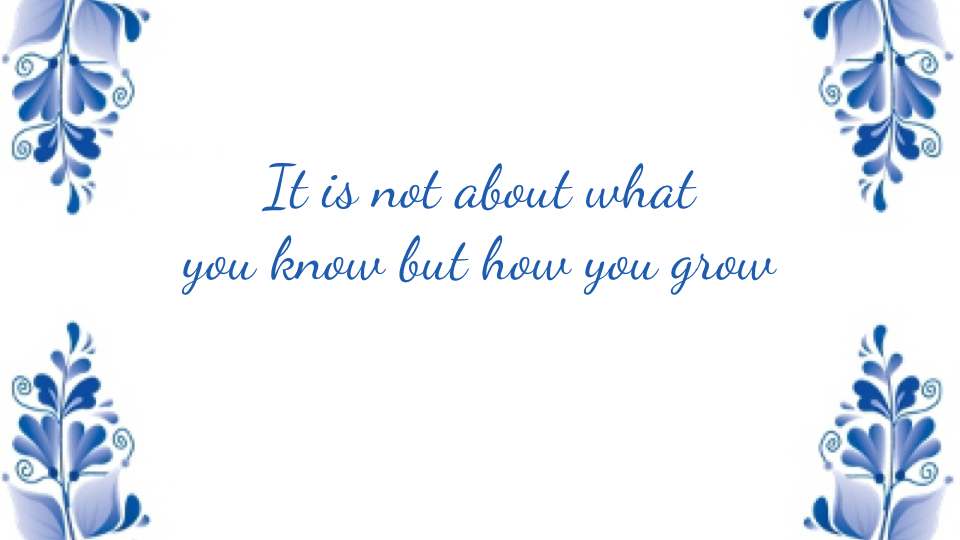
As a teacher and evangelist in the world of contract management I see the demand for skilled professionals growing like crazy, the conversation in filling this gap between need and available resources often ends up in all kind of topics around learning. I see organizations developping programs to educate senior projectmanagers into roles as contractmanagers springing up all over the place. Agile professionals realize that in order to realize change they need to work together with third parties; and working with others means you agree on something and that is a contract. Servicemanagers start to realize that altough in Itil and in many other frameworks there is an interface with external supply but how it actually works is something they want to know more of.
But here’s the nuance: continuous learning is not the same as continuous development. While learning is about acquiring knowledge, development is about transforming that knowledge into wisdom, experience, and actionable growth. The growing population of contractmanagers out there is getting better at it, not just by learning…
Why continuous development matters
As contract managers, we operate in an environment where complexity is the norm. It’s no longer sufficient to simply know the rules or understand the frameworks. Success requires a holistic approach—one that blends knowledge with practical skills, emotional intelligence, and the ability to navigate relationships.
Continuous development goes beyond attending workshops or earning certifications. It’s about:
– Investing in knowledge: Staying updated on industry trends, regulations, and best practices.
– Honing skills: Developing negotiation techniques, analytical thinking, and decision-making abilities.
– Building relationships: Strengthening collaboration with stakeholders, suppliers, and internal teams.
– Embracing wisdom: Applying past experiences to current challenges and anticipating future needs.
The role of failure in development
One of the most overlooked yet vital aspects of development is the ability to learn from failure. In contract management, no process is ever flawless. There will always be opportunities to reflect on what could have been done better. The key lies in how we respond to those moments.
Failure, when approached with the right mindset, is not a setback—it’s an opportunity. It teaches us resilience, adaptability, and the importance of humility. But to truly benefit from failure, we must foster an environment where feedback is welcomed, not feared.
Feedback: The catalyst for growth
To grow, we need to be open to feedback—not as criticism but as a tool for improvement. This requires a shift in mindset:
– Be curious, not defensive: Ask questions to understand the root cause of issues.
– Focus on the future: Use lessons learned to inform future actions rather than dwelling on past mistakes. Time travel is as of yet not an option so improvement is always forward in time.
– Celebrate effort, not just success: Acknowledge the courage it takes to try, even if the outcome isn’t perfect.
Applying to contractmanagement
In contract management, every project offers a wealth of insights. Some of these insights will highlight successes worth replicating, while others will uncover areas for improvement. The latter are just as valuable—sometimes even more so.
For instance, you might identify a clause that led to ambiguity or a communication gap that caused delays. While these issues need immediate attention, they also serve as lessons for future contracts. By documenting these learnings and integrating them into your processes, you’re not just solving problems—you’re evolving your practice.
The path forward: A culture of development
To truly thrive as contract managers, we must embrace development as an ongoing journey. It’s about more than ticking boxes or meeting KPIs. It’s about becoming better professionals—and better people—by continually investing in ourselves and those around us.
So, let’s commit to:
– Celebrating our successes.
– Learning from our failures.
– Seeking feedback with an open mind.
– Developing not just knowledge, but wisdom.
Because in the end, the measure of a great contract manager isn’t just what they know—it’s how they grow.
Follow & contact